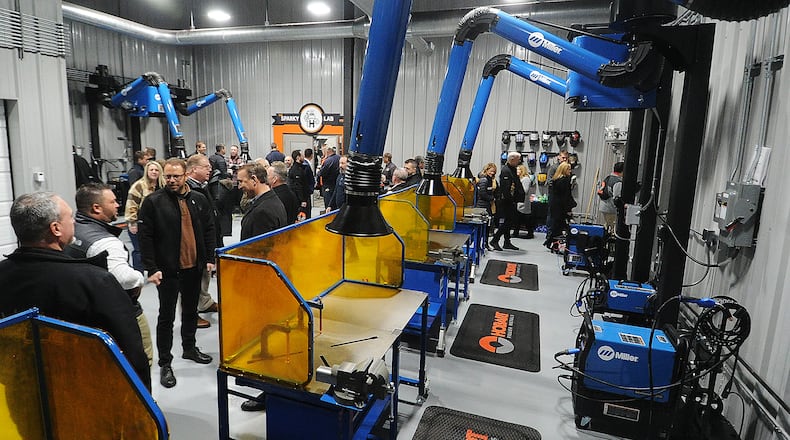With about 330 employees in Troy, 100 in Piqua and about 20 in Michigan, Hobart produces filler metals — the metals that bring materials together in welding — for industrial customers around the world, from shipbuilders to oil pipelines to rail cars, automobiles and much more.
“I think you can sense our excitement and almost giddiness here,” Bob Bilokonsky, Hobart vice president and general manager, said at a ribbon-cutting event.
If anyone wants to explore the art of modern welding, the new center would be the place to do that. The site includes robotic welding stations, training spaces, a lab, a conference room, a classroom and more.
Experienced, qualified welders are increasingly hard to find, and giving industrial customers a place to refine welding skills is one way to deal with that, said Blake Heim, Hobart commercial director.
“We train our distributors and sales reps on the latest and greatest products in the welding industry,” Heim said in an interview. “We have a customer applications lab where we’ll work with end-users on providing and recommending the right welding procedures to use with our filler metals.”
Heim agreed that much of modern life would be impossible without welding. If customers wants to switch or update filler metal technologies, they can work with Hobart, Heim said.
The center features a new Hercules automated welding system, with semi-automatic welding stations and arc welding equipment besides.
“Our customers are able to see the filler metal and welding equipment solutions in action before putting them into production,” said Tre’ Heflin-King, Hobart applications engineering manager.
While the Hobart family has had a presence in Troy since the late 19th century, the family started its welding business here in 1917. In 1996, ITW, a Fortune 200 company, acquired Hobart. While under the ITW umbrella, Hobart has remained based in Troy.
About the Author

